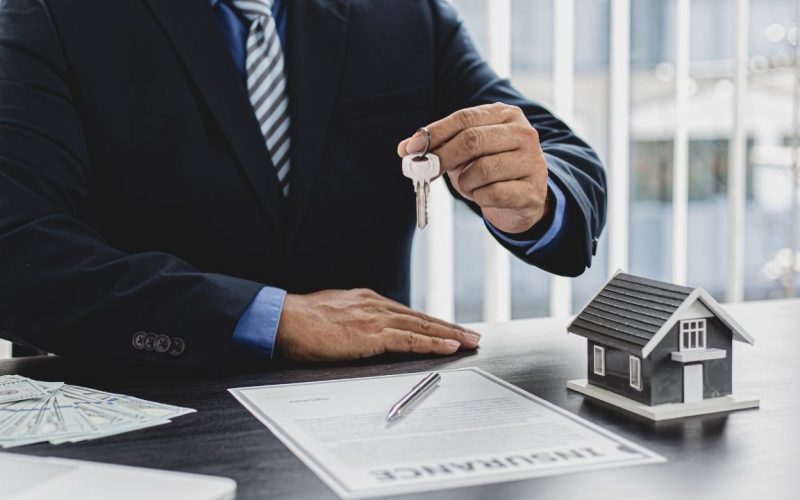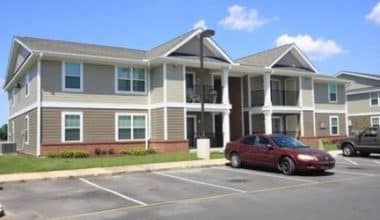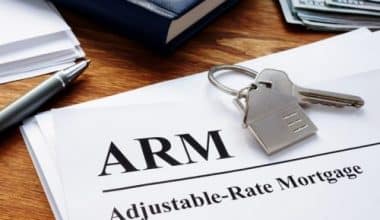A mortgage broker is an intermediary who brings mortgage borrowers and mortgage lenders together but does not use their own funds to originate mortgages.
He/She helps borrowers connect with lenders and seeks out the best fit in terms of the borrower’s financial situation and interest-rate needs.
The mortgage broker also gathers paperwork from the borrower and passes that paperwork along to a mortgage lender for underwriting and approval purposes. The broker earns a commission from either the borrower, the lender, or both at closing.
A mortgage broker should not be confused with a mortgage banker, which closes and funds a mortgage with its own funds.
Get to know more about a mortgage broker as you read through this article.
Who is a Mortgage Broker?
A mortgage broker serves as a middleman between borrowers and lenders in the real estate market.
Whether a potential borrower is buying a new home or refinancing, a broker gathers loan options from various lenders for the borrower to consider, while qualifying the borrower for a mortgage with those lenders at the same time.
The broker also gathers financial information such as income, assets, and employment documentation; a credit report; and other information for assessing the borrower’s ability to secure financing that is then passed on to potential lenders.
The broker determines an appropriate loan amount, loan-to-value (LTV) ratio, and the borrower’s ideal loan type, then submits the loan to a lender for approval. The broker communicates with the borrower and the lender during the entire transaction through closing.
Once agreed upon, mortgage funds are loaned in the name of the mortgage lender, and the mortgage broker collects a commission called an origination fee from the lender as compensation for its services.
The borrower may be responsible for paying all or part of that fee in the closing statement. The broker only gets paid when the loan transaction is completed.
Borrowers should search online reviews and ask for referrals from real estate agents, friends, and family to find a mortgage broker who has the right credentials for the borrower’s level of experience. It’s important to work with an individual whom you trust and who provides good service.
READ MORE: Mortgage Brokers: How do Mortgage Brokers Make Money in the US (Updated)
How to Become a Mortgage Broker
To become a mortgage broker, you need to obtain a certain level of education and expertise. Having the right background sets you up for greater success when you search for employment in this profession.
Follow these steps to become a mortgage broker:
1. Earn a high school diploma and an advanced degree
Earn at least a high school diploma or your GED to fulfill the educational requirements for a mortgage broker. While you don’t necessarily need a formal degree, consider earning an associate or bachelor’s degree in business administration, finance or accounting to help improve your employment opportunities and earning potential.
2. Take a pre-licensure class
As an aspiring mortgage broker, you need to get your license. Complete a pre-licensure program, which is a 20-hour class that covers topics like federal and state mortgage laws, broker ethics, and financial regulations.
3. Pass the National Mortgage License System (NMLS) test
Once you complete the pre-licensure course, pass the NMLS exam. Known as the SAFE Mortgage Loan Originator Test, this exam test your knowledge of things like mortgage practices and state guidelines and regulations.
To pass both the state and federal parts of the exam, you need at least a 75% score.
Make sure to renew your license each year by passing background and credit checks. Keep in mind that some states have additional requirements.
4. Register and establish your mortgage brokerage
After you pass your exam and complete the required coursework, register your mortgage brokerage business.
The requirements for registering your mortgage brokerage business vary by state. Register your business with various details like your business name and location through your state’s licensing authority.
As you register your brokerage, consider whether you want a physical location to provide your services or if you want an online brokerage business.
Some states require you to have a physical location. If you opt for a physical location, consider the price of renting a physical space and its accessibility to your customers.
If you decide to have an online business, consider creating a home office that allows you to work free from distractions.
READ MORE: What are the Types of Brokers and Brokering Services?
5. Apply for your mortgage broker license and get your mortgage broker bond
After you pass the exam and register your business, apply for your mortgage broker license. Determine your state’s requirements with the NMLS.
Typically, you have to pass your exam, pay a licensing fee, get the right bond and submit your application to get your mortgage broker license.
You also need to get your mortgage broker bond to get your license. Having a mortgage broker bond protects your clients if you don’t follow your state’s rules of operating as a broker. It also helps you prove your validity to your potential customers.
The amount of a brokerage bond you’ll need depends on your state. It’s worth noting that you pay for a percentage of the total bond amount.
How much you pay depends on various factors, including your financial history and your business details.
Once you determine the amount of bond you need, submit an application online. After you receive your bond certificate, sign it and send both the certificate and your license application to your state.
After the state reviews and approves your application, you’ll receive your license. Once you have your license, you can start working as a licensed mortgage broker.
6. Maintain your license
Keep up with mortgage lending developments in your city and state. Also, keep your license current by completing continuing education courses each year.
When you renew your license each year, you need to submit proof of your continuing education.
Not only does this keep your license current, but it also ensures you’re offering your clients the most up-to-date loan information.
7. Continue your training
To become a successful mortgage broker, it’s important to continue your training and education.
Consider taking online or in-person courses to help improve your industry knowledge and help you better understand various state and federal regulations.
Also, make sure to build relationships with other mortgage brokers to help you stay current in your field and learn about the best industry practices.
READ MORE: Business Liability Insurance: Definition, Costs, Coverage & Cost-Effective Options
How to Become a Mortgage Broker in California
For this, the first and most important thing to do is to get your license.
This type of mortgage broker license will permit you to broker loans if they also have a mortgage loan originator (MLO) license.
Residential Mortgage Lender License holders can broker to other Residential Mortgage Lender Licensees, as well as institutional lenders, such as state or federally chartered institutions.
A California Finance Lender License holder can act as a broker in connection with loans made by a California Finance Lender License acting as a Lender.
A California Lender license can be issued as a lender, a broker, or both. Only companies making or brokering residential mortgage loans are required to be licensed through the Nationwide Mortgage Licensing System (NMLS).
READ MORE: Financial Sector: All you should know (+ Detailed Examples)
How to Become a Mortgage Broker in Florida
Provide information about your principal loan originator (must be licensed as a Florida loan originator) followed by these procedures;
- Complete Form MU2 for each control person in your business
- Answer Disclosure questions on Forms MU1 and MU2
- Provide FBI and state criminal history background check for each control person
- Submit credit reports for all control persons
Previously, applicants also had to provide a mortgage broker surety bond as a part of the licensing. However, the procedure has been simplified and this requirement is not necessary anymore.
In addition, you have to pay the required fees, which include:
- $425 application fee
- $100 NMLS processing fee
- $38.75 background checks per person
- $15 credit report fee per person
READ MORE: Deed Of Trust: Overview, Mortgage vs. Deed of Trust & How it Works
How to Become a Mortgage Broker in Texas
The requirements for your Texas mortgage broker license include the following;
- Completed company application form MU1 (mortgage company application)
- Financial statements
- Formation documents
- Business plan
- Organizational and management charts
- Disclosure questions
- Obtain FBI and state criminal history background check for each control person
- Provide credit reports for all control persons
In addition, you also have to complete the mortgage loan originator license (Form MU4) for each employee in your company who will originate loans. The criteria are
- Completed 23 hours of pre-licensure education
- Passed exam
- Criminal background check
- Provide credit report
- Disclosure questions
Applicants with the Department also have to meet the financial requirements set in the Texas Mortgage Broker License Act.
You have to either maintain net assets of at least $25,000 or provide a mortgage broker surety bond of $50,000.
The bond functions as an additional layer of guarantee for the legal compliance of the licensed broker. In order to get bonded, you have to pay a small fraction of the required bond amount, which is your premium.
READ MORE: AD and D Insurance: Definition, Benefits, Coverage, & Payouts
How to Become a Mortgage Broker in New Jersey
You must have a license to work as a mortgage broker in New Jersey. It’s illegal to provide brokerage services without one, and if you do, you could be subjected to fines, jail time, and being barred from ever getting a license.
Therefore, you need to do everything required to earn and maintain a license. Here are the primary requirements:
- Complete Pre-Licensing Training – All brokers must complete a training course administered through the Nationwide Mortgage Licensing System (NMLS).
- Pass the Test – Mortgage brokers are also required to pass the Secure and Fair Enforcement (SAFE) Mortgage Loan Originator Test.
- Provide a Financial Statement – New Jersey requires mortgage brokers to provide an audited financial statement proving they have at least $50,000 in assets.
- Obtain A Bond – Mortgage brokers bonds help consumers seek compensation if brokers ever break the law during a lending deal. All brokers must obtain a bond with at least a $150,000 limit and renew the bond annually to keep it active.
- Submit to a Background Check – In order to keep brokers with ethical issues out of the industry, New Jersey requires all applicants to submit to an FBI background and fingerprint check.
READ MORE: Alternative Investments: Beginners Guide to the Investment Options
How to Become a Mortgage Broker in Georgia
Follow these procedures to become a Mortgage broker in Georgia.
1. Sign up for an NMLS Account and ID Number
To get a Georgia MLO license, apply for an ID number in an NMLS account through the NMLS website.
2. Take NMLS Pre-License Classes
Your mortgage license in Georgia requires 20 hours of instruction, which must be pre-approved by the NMLS. This includes 3 hours of Federal law, 3 hours of ethics, 2 hours of non-traditional mortgage lending, and 12 hours of undefined education (electives).
3. Take Your Licensing Exam
With your education complete, you need to schedule an appointment for the National Test Component exam. Learn here how to sign up for the NMLS exam.
4. Submit to Background Checks
When you pass your NMLS exam, you will then apply for your license; you will need to pass a criminal background check and submit fingerprints. Learn how here.
5. Apply for a Mortgage License in Georgia
6. Coordinate Your NMLS Account with Your Organization
Your Georgia MLO license will be considered “pending” until your organization sponsors it, showing that they are supervising you. See how to complete this process here.
READ MORE: Personal Finance: Basics, Importance, Types, Management ( + Free Softwares)
How to Become a Mortgage Broker with no Experience
All the procedures outlined in this article are for beginners. So, if you don’t have experience being a mortgage broker, follow the guidelines we’ve listed above.
How do I get my mortgage broker license in Australia?
You must finish a recognized qualification, receive a license, and gain experience while working under a mentor in order to become a mortgage broker in Australia. Obtain a recognized credential, such as a Certificate IV in Finance and Mortgage Broking (FNS40821).
How do I become a mortgage broker UK?
You will need to complete a Financial Conduct Authority-recognized qualification in mortgage advice. You would hone your abilities by combining on-the-job training with coursework for an industry-required certification offered by your company.
How do I become a broker NZ?
You need to hold a valid financial adviser license issued by either your employer or yourself in order to work as a mortgage broker. In order to do this, you must join a dispute resolution program and register on the Financial Services Provider Register (FSPR) (DRS).
Is being a mortgage broker stressful?
New data indicates that an overwhelming number of people working with property are negatively impacted by the stress of what is essentially a 24/7 career, even if many mortgage advisers go solo to restore some lifestyle and freedom.
Is mortgage broker a good career in Australia?
According to the Mortgage and Finance Association of Australia, mortgage brokers make an average of $188,000 a year. The Australia Bureau of Statistics reported that amount to be much greater than the national average, which was found to be around $82,000 annually.
Can I open my own broker?
However, you must obtain a license, create a business plan, and set up a budget before you can make a profit and start your own brokerage. A brokerage can only be founded by licensed brokers. You must begin hiring agents after developing a company plan and obtaining money.
Bottom Line
I hope these articles explain to you how to become a mortgage broker with ease. If you have any questions, kindly let me know in the comments section.
Good luck!
Recommendation
- Alternative Investments: Beginners Guide to the Investment Options
- Real Estate Industry: Overview, Types & Examples
- Financial Institutions: The A-Z Guide With Top 10 Examples (+ quick easy tips)
- What Are SHORT-TERM INVESTMENTS: Definition, Examples, and Banks
- What Are Hard Money Lenders & How to Find Them in the US






